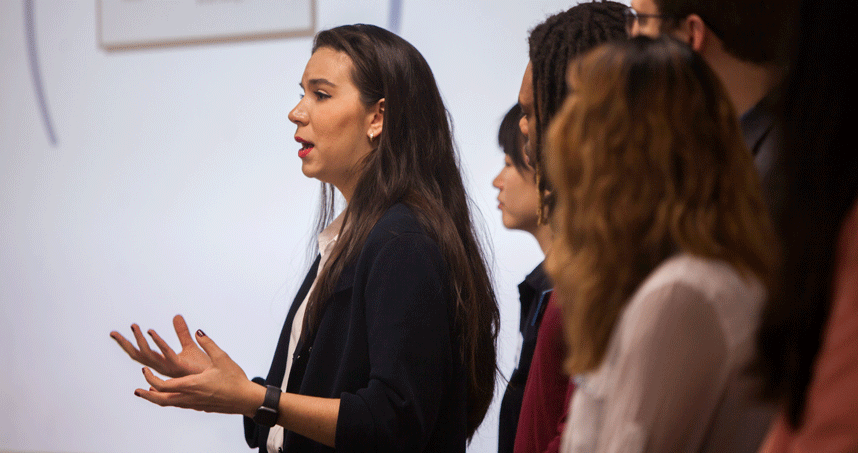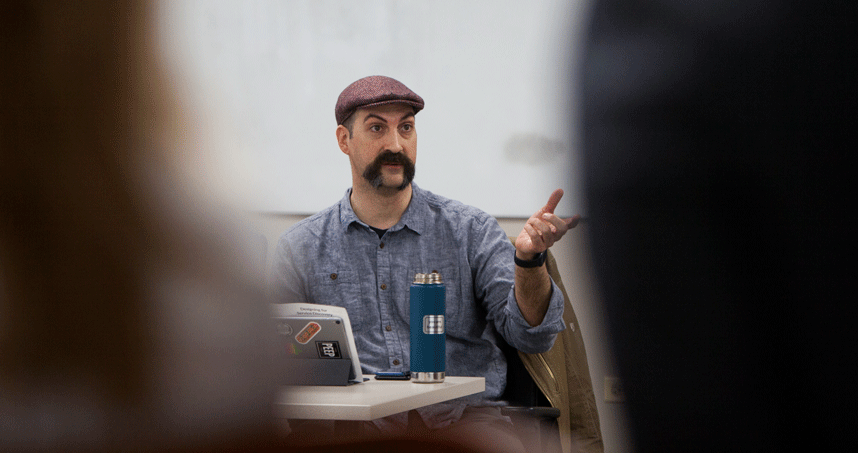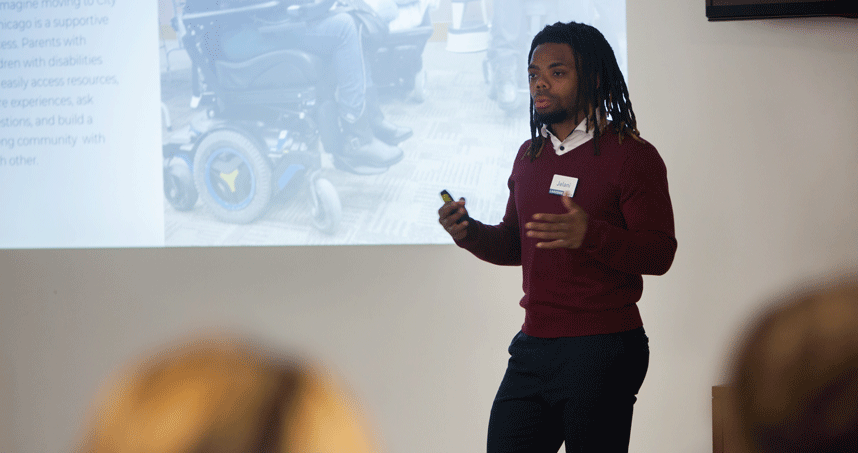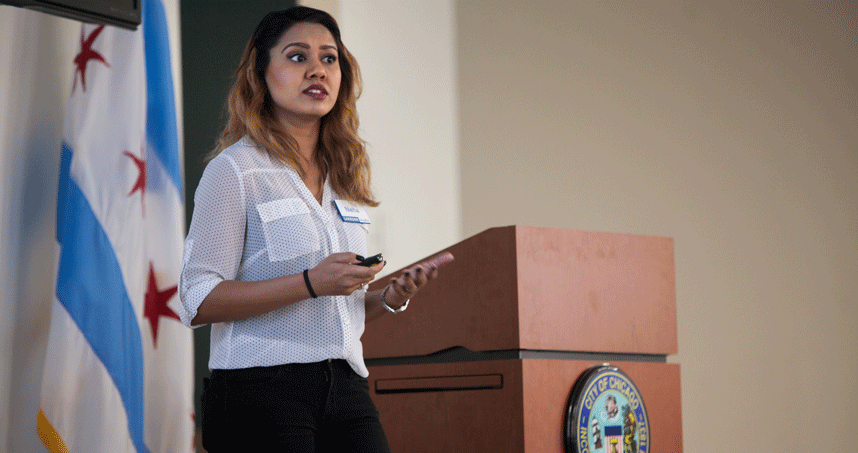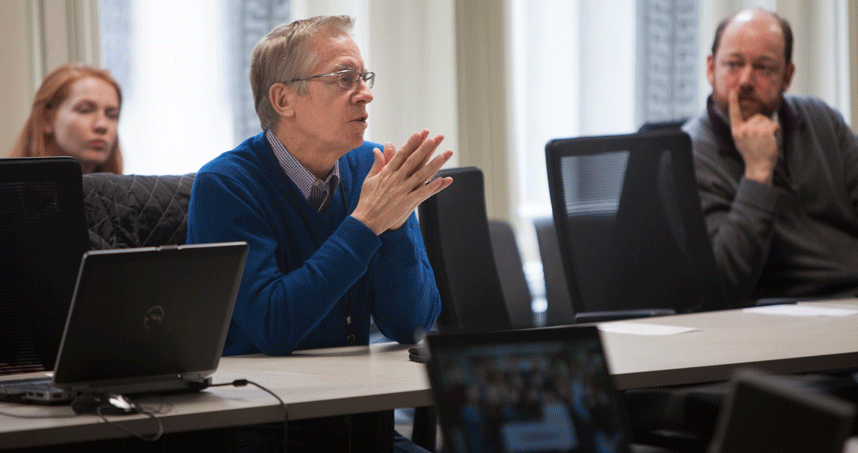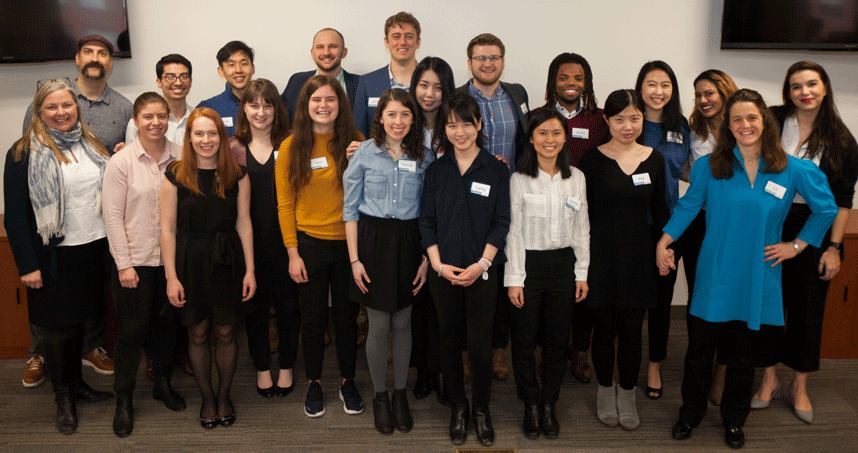City of Chicago Partners with Northwestern Engineering to Explore Civic Service Design
Eighteen EDI students designed new service discovery tools for Chicago residents
Eighteen students in the Segal Design Institute’s Master of Science in Engineering Design Innovation (EDI) program presented designs for service discovery tools to City of Chicago officials this week, marking the first time a Northwestern Engineering class partnered with the city on a collaborative design project.
During the winter quarter studio class, DSGN 401-3: Human-Centered Design Service Design, students developed resources for Chicago residents, allowing them to better understand, access, and interact with city services. From attending PTA meetings to shadowing an alderwoman’s campaign and meeting with public school principals, the students conducted field research to learn how residents interact with city services and the challenges they face.
The course, taught by Liz Gerber, the Charles Deering McCormick Professor of Teaching Excellence and co-director of the Delta Lab, and Amy O’Keefe, studio director for the EDI program, teaches students about service design – the process of understanding ecologies of stakeholders and iteratively designing and testing solutions to meet the different needs. For this project, students worked to understand how citizens of Chicago discover existing city services and collaborated to design ways to help more citizens discover more services.
“The students have great energy and insights,” said project partner, Jason Kunesh, design director for the City of Chicago. “It’s been a wonderful experience for city staff, nonprofit partners, businesses, and residents who interacted with the students. I really appreciate the thorough and empathetic approach the Northwestern students bring.”
At City Hall on March 13, city employees including representatives from the Department of Innovation and Technology heard presentations on the students’ four ideas:
- Dear Chicago is a storytelling platform dedicated to sharing anecdotes based on service needs and locality. Through an online archive and physical listening stations, community members could share their success stories utilizing city services, empowering high-barrier residents like first generation immigrants or differently abled residents to interact with services. By recording anecdotes in neighbors’ native languages, new residents could use the service for trusted word-of-mouth recommendations.
- Civic Connect encourages residents to become more engaged in their community through civic technology. This digital platform connects civic technologists with residents who want to increase their civic engagement by providing feedback. Civic Connect would encourage civic technologists to build with, not for, residents and meet the residents where they are regardless of their technical skill or capabilities.
- MOPD Hub is a digital platform for parents of students with disabilities. The Mayor's Office for People with Disabilities (MOPD) works to make Chicago the most accessible city in the nation on behalf of residents and visitors with disabilities. The MOPD Hub would consolidate government information and connect parents to share experiences, ask questions, and form community.
- Service Connect is a platform allowing service providers working for the city, local agencies, and nonprofits to provide personal and efficient referrals to connect residents with the services they need such as housing assistance or food delivery. This would improve coordination across different services while building and strengthening relationships between service providers and residents.
“We were excited to take on this project. We’ve seen that city officials are trying their best to serve the community and find creative new ways to deliver services,” said Bradley Sedor (EDI ’19). “We hope the city officials come away with different perspectives about applying civic service design to their initiatives. It’s a really good conversation starter.”
While this project focused on service design in the civic sector, the course also covers service design in health, financial, transportation, retail, and consumer services.
